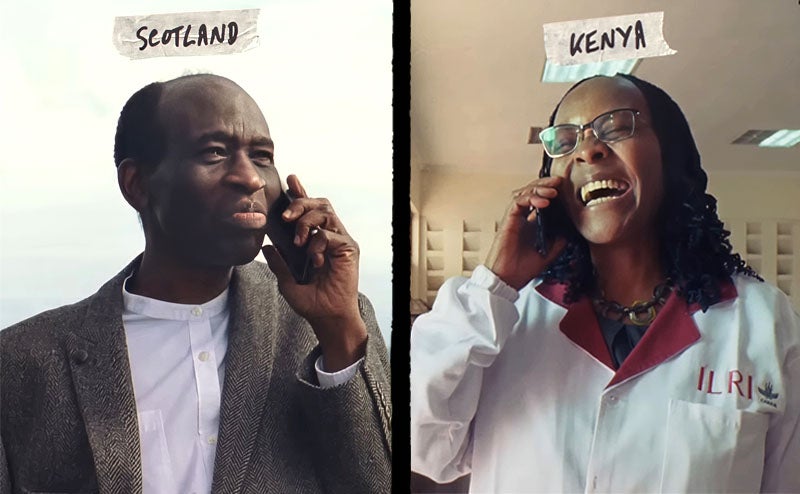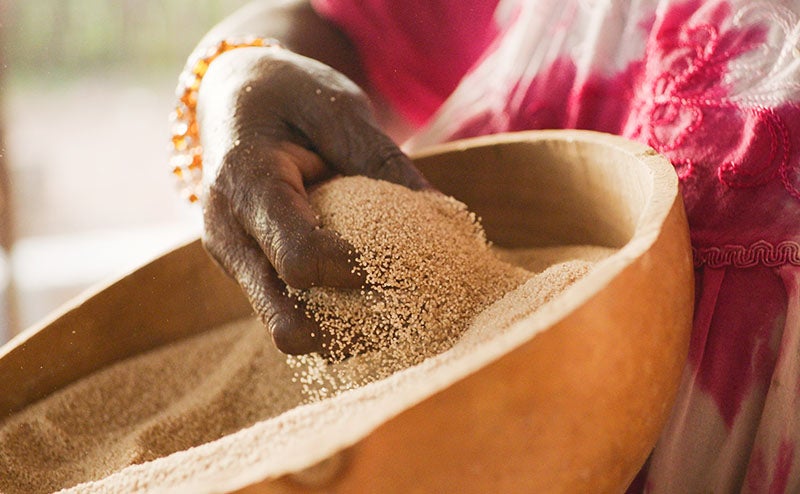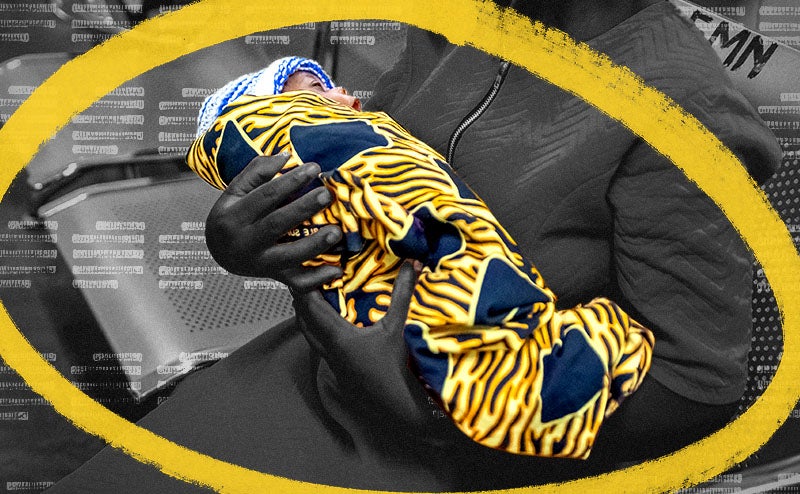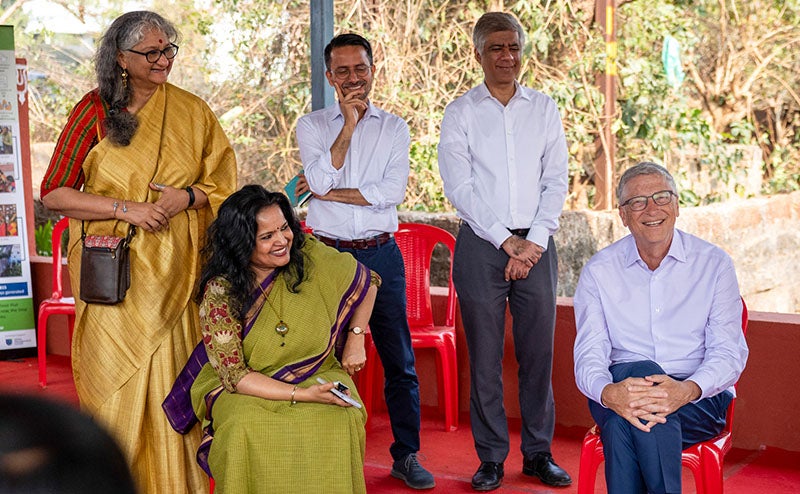So how do we fight climate change caused by agriculture?
It’s hard for me to overstate how brave people who willingly put themselves on the frontlines of outbreaks are—especially when you’re up against an enemy we haven’t seen before. Without any information about how a disease jumps from person to person, it’s difficult to protect yourself. Your only option is to put on a biohazard suit and trust that it will keep you safe.
If you’re a health worker in a situation like that, you’re often faced with patients you can’t help. We can’t treat a disease until we know what it is, after all. That’s where virus hunters come in.
Virus hunters are given a near-impossible task: find out where a mystery pathogen came from, how it’s transmitted, and how to stop it. Although they’re scientists and researchers by training, they also have to be detectives. A good virus hunter must look for clues and follow leads until they catch the bad guy. Think True Detective, but with microscopic pathogens instead of serial killers.
Virus hunters are doing amazing work all over the world to stop infectious diseases (including those caused by bacteria and other pathogens—the name is a bit misleading!). I want to introduce you to two examples that I find particularly inspiring: the doctor who tracked down one of the most infamous diseases in human history, and a team of rock star scientists that deploys to outbreak zones on a moment’s notice.
The real-life Sherlock Holmes who helped discover Ebola
When I picture the quintessential virus hunter, one name comes to mind: Dr. Peter Piot. I’ve spent a lot of time with Peter over the years, and I never get tired of hearing him talk about the case that made him famous.
Peter was just 27 years old when the Belgian lab where he was working received a blood sample infected with a then-unknown disease. In 1976, most people thought infectious diseases were a thing of the past—but health officials were starting to worry about a new sickness in Zaire (today called the Democratic Republic of the Congo) that caused people to bleed until they died. Peter and a team of researchers around the world worked together to identify the mystery virus, which we now know as Ebola.
But identifying a virus on a microscope is only the first of many steps to stopping an outbreak. So, with no real idea of what he was up against, Peter headed to Zaire to hunt for patient zero. He and his colleagues drove from village to village in a Land Rover, collecting information about who was sick and where they had been before symptoms appeared.
Eventually, Peter spoke to a group of nuns who noticed that people seemed to get sick after they attended the funeral of someone who died from the disease. That tip led to a key revelation: Zairean mourners washed their dead. After they touched the bodies—which were often covered in blood—the mourners would eventually rub their eyes or put their fingers in their mouths. A week later, they’d get sick.
That understanding helped Peter and the other virus hunters understand that Ebola spreads through contact with a sick person’s body fluids. Once we knew how the disease was transmitted, it was a lot easier to limit its spread and stop the outbreak before it reached a critical level.
Peter’s experience with Ebola was just the beginning of a long career fighting infectious disease. He was one of the first microbiologists to study AIDS, and in 1995, he became the founding executive director of UNAIDS. During his 13-year tenure, he coordinated the global response to HIV/AIDS through the discovery of the first treatments for the disease and the peak of the pandemic. After a brief stint at the Imperial College London and as a fellow with our foundation, he became the director of the London School of Hygiene and Tropical Medicine where he still teaches today.
The Avengers of virus hunters
Peter isn’t the only virus hunter in residence at the London School of Hygiene and Tropical Medicine, though. In partnership with Public Health England, the school also hosts the UK Public Health Rapid Support Team (or RST)—a heroic supergroup of scientists who deploy to outbreak zones to help local governments stop infectious diseases.
In just a little more than two years since it was created, the RST has already assisted in controlling 11 outbreaks in seven countries. The team has deployed to scenarios ranging from a diphtheria outbreak at a Rohingya refugee camp in Bangladesh to a plague flareup (yes, that plague) in Madagascar.
Here’s how the RST works: as soon it becomes clear that an outbreak is underway, the local government (or, in rare cases, the WHO) requests their help. Not every team member is needed for every outbreak—sometimes you need an epidemiologist and a data scientist but not a microbiologist—so the first step is to identify who needs to go. The chosen team then has 48 hours to get their visas squared away, pack up any special equipment, and get to the airport for their flight to the outbreak zone.
Once on the ground, they either build a mobile laboratory or set up their equipment to supplement what’s already there. The team then gets to work supporting local health officials. The tools they have at their disposal are a lot more high-tech than the ones Peter used back in 1976 (including gene sequencing, which they use to decode the genetic makeup of viruses). This technology helps the RST work with local experts to target the origin of the outbreak and limit its spread.
A typical deployment lasts six weeks. If the outbreak is still ongoing at the end of that period, the current team heads home to London, and a new team takes their place. For example, the RST has been on the ground in the Democratic Republic of the Congo since the beginning of the latest Ebola epidemic there. When they’re not in the field, the team spends their days researching how to better respond to outbreaks and helping countries improve their capacity to control disease emergencies.
I’m really glad that the United Kingdom invested in a team like this, the Rapid Support Team’s work is an important part of a global coalition that makes all of us safer. We don’t know when—or where—the next major disease outbreak will emerge. It could arrive next month, next decade, or next century. And in a world where you can fly nearly anywhere in less than a day, there are no guarantees the next epidemic will remain confined to the other side of the world from you. The ability to respond to a disease is crucial for protecting the world from the next pandemic, and I hope more countries follow the U.K.’s lead.





